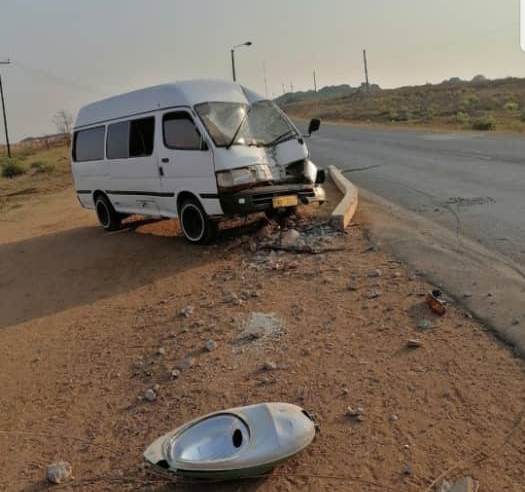BY PIJ REPORTER
For decades, Thom Mpinganjira built his business empire, owning Malawi’s third-largest bank by deposits and assets. Then in the summer of 2020, it all came crumbling down, like a house of cards, when Mpinganjira was arrested by the Anti-Corruption Bureau (ACB), in operation supported by the military, accused of attempting to offer bribes to the panel of five judges presiding over the case of the elections.
As Mpinganjira developed his business empire, so did his public persona as a hardworking, respected business and philanthropist, serving as a Trustee for both Cancer Association of Malawi and Diabetes Association of Malawi.
Meanwhile, his profile on the business landscape saw him serve as a Member of the Reserve Bank of Malawi Governor’s Consultative Committee of Bank & Financial Institutions CEOs, and Chairman of the Stakeholders Committee for the Millennium Challenge Account, Board Chairman of the Malawi Investments Promotion Agency; a Council Member of the Bankers Association of Malawi; a Board Member of the Institute of Bankers in Malawi; and a Member of the Committee of SADC Stock Exchanges (COSSE) and the Association of African Stock Exchanges (ASEA).
He was a monumental and inspiring figure for many black Malawians, still envious of the Asian community dominating business.

But the universal adulation he enjoyed appeared to have started waning when Mpinganjira acquired, under controversial circumstances, the state-owned Malawi Savings Bank, with the opposition and civil society questioning the motive and details of the deal.
On 2nd July 2015, Government, through the then Minister of Finance Goodall Gondwe, signed sale agreement with FDH Holdings Limited to buy 75 percent shares in the Malawi Savings Bank at K9.5 billion and agreed to offset billions of loans obtained by mostly politically connected individuals, top of the list, Mulli Brothers Holding Limited.
His fall from grace would be complete following the disputed presidential elections in May 2019 that re-elected President Peter Mutharika of the then ruling Democratic Progressive Party (DPP)—with two of the opposition candidates Saulos Chilima (United Transformation Movement (UTM) and Lazarus Chakwera (Malawi Congress Party) petitioned the courts—claiming the elections were marred by a myriad of irregularities and rigged in Mutharika’s favour—petitioned the courts to cancel the elections.
As their legal teams battled out in court with the lawyers for Mutharika and the Malawi Electoral Commission (MEC) in a gripping trial played out in live radio broadcast to the nation, on 28th November 2019, then Anti-Corruption Bureau ACB boss, Reyneck Matemba, received a phone call from the Chief Justice Andrew Nyirenda, asking for a meeting. At the meeting, the head of the Judiciary detailed to Matemba a complaint by the panel of five judges against Mpinganjira.
Justice Michael Tembo and Justice Healy Potani, the head of the judges’ panel, provided statements to the bureau just days after Chief Justice Andrew Nyirenda officially wrote the Bureau on 2nd December 2020, registering the complaint on behalf of the judges.

During a Sunday afternoon press briefing on 14th January 2020, Matemba revealed to the media the complaint but refused to name the alleged culprits, describing them simply as “two public officials and a businessman.” Two days later, on Thursday, 16th January 2020.
Civil society group Human Rights Defenders Coalition (HRDC) organized a nationwide demonstration calling for arrest and release of names of the suspects.
The Platform for Investigative (PIJ) would source the official complaints by the Bureau and revealed how the judges were pestered for meetings and offered K100 million bribe to rule in favour of the DPP.
Mpinganjira would eventually be arrested on Wednesday, 22 January 2020. Still, after being handed over to police at around 5 pm to be kept in custody at Blantyre Police Station, pending a court appearance the following day, drama would unfold as his lawyers will, within the night, obtain a release order controversially, from a magistrate in Zomba.
On trial, Mpinganjira at one point announced he was going to enter a plea bargain agreement with the state before turning around and go on attack, demanding the recusal of the judge, whom he claimed wanted to solicit a bribe from him through other lawyers and open a can of worms by detailing a list of gifts of huge sums of money he had donated to the country’s political elite including, allegedly, President Lazarus Chakwera, Vice President Saulos Chilima, former president Joyce Banda and the DPP.
That mucking of the water, if that was the point, that might see Mpinganjira’s conviction on Friday turn to be just the beginning of his legal troubles. In her ruling, Justice Dorothy Degabrielle ruled that his use of his Trust to finance the former ruling DPP could potentially have violated the law and ordered a fresh criminal investigation.
The rest of the defence by Mpinganjira, that the judges entrapped him and that he did not offer the bribes but was only attempting to verify if reports that judges were receiving bribes was quickly thrown away.
Justice DeGabrielle “There is no other explanation when one looks at the evidence in this court. These circumstances lead to the guilt of the accused person.”
Matemba, the former ACB director who remained prosecutor in the case despite moving away from the Bureau to Ministry of Justice and Constitutional Affairs as Solicitor General, told the court a Mpinganjira’s conviction would serve as a lesson to the rich and powerful.
“He wanted to use his wealth, power, and influence to manipulate the justice system. This should not be tolerated. He should serve as a lesson to the rich, powerful, and influential that Mpinganjira should not use their wealth, power, and influence to manipulate the judicial system. We have the law to be respected,” he said, adding that the State is yet to be served with his medical reports to determine his health status.
Defeated and left to plea for a lenient sentence, his lawyers argued he was a socially upright man, old, sick, recently recovered from covid-19, and one whom many depended upon, including the second-most supported football team in the country.
But Matemba went for the kill: “His uprightness is eroded in the case he was answering,” he told the judge, “He is no longer an upright man. He could have known that when he voluntarily embarked on the journey. He wanted to defeat the course of justice in the highest-profile case ever in this country.”
Danwood Chirwa, a law professor at Cape Town University, described the ruling as “least surprising.”
“The accused person here faced a charge about which the state relied in part on the evidence of a judge, one of the most respected and credible in the country. His evidence was unimpeachable,” said Chirwa. “On the other hand, in conducting his defense, the accused gave the impression that he was a maverick, untethered to any sense of humility and ethical consciousness, who thinks that anyone can be bought and enslaved to his whim. His entire defense was erected on deflections, falsehoods, and pomposity.
“He has learned the hard way that justice is not up for sale to the highest bidder in Malawi.”

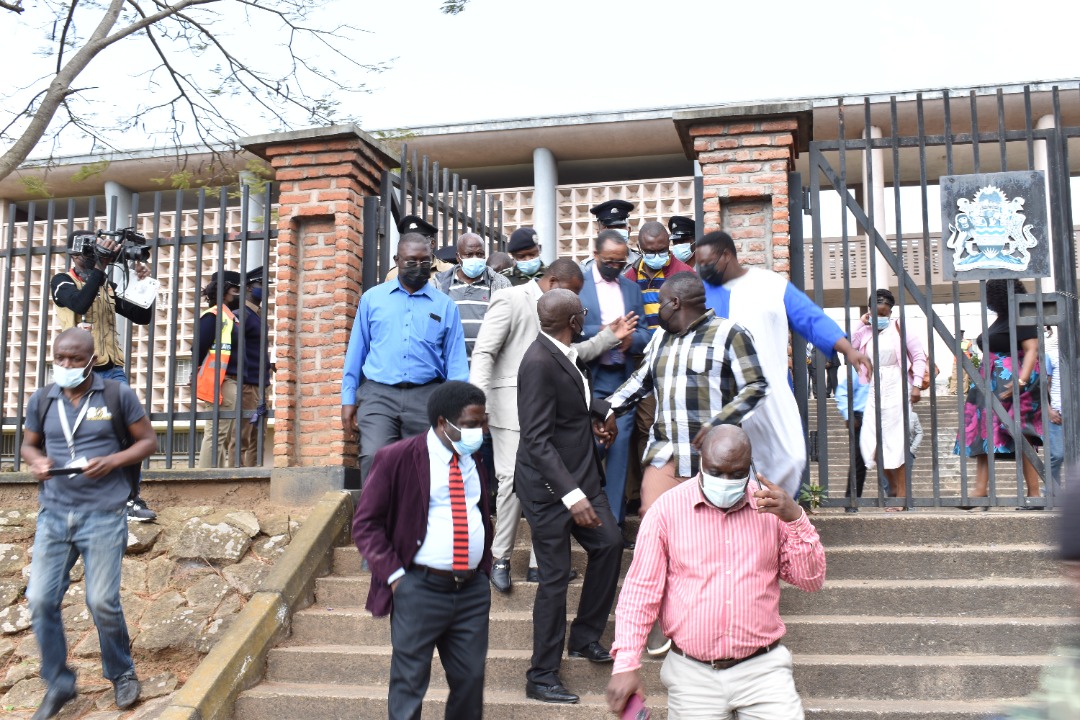

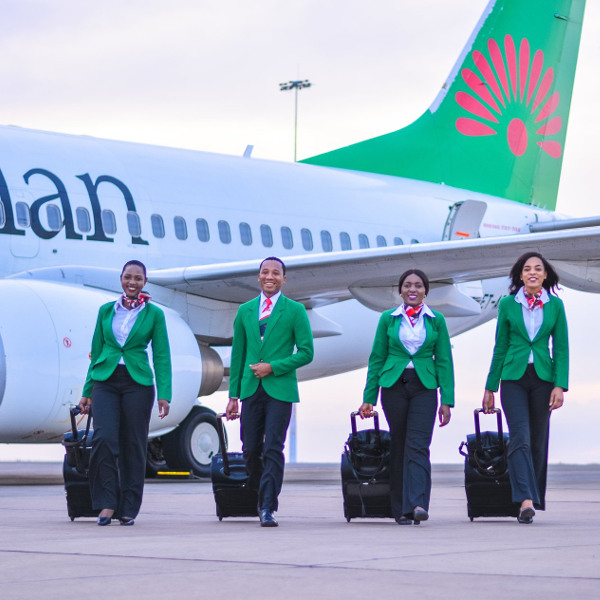
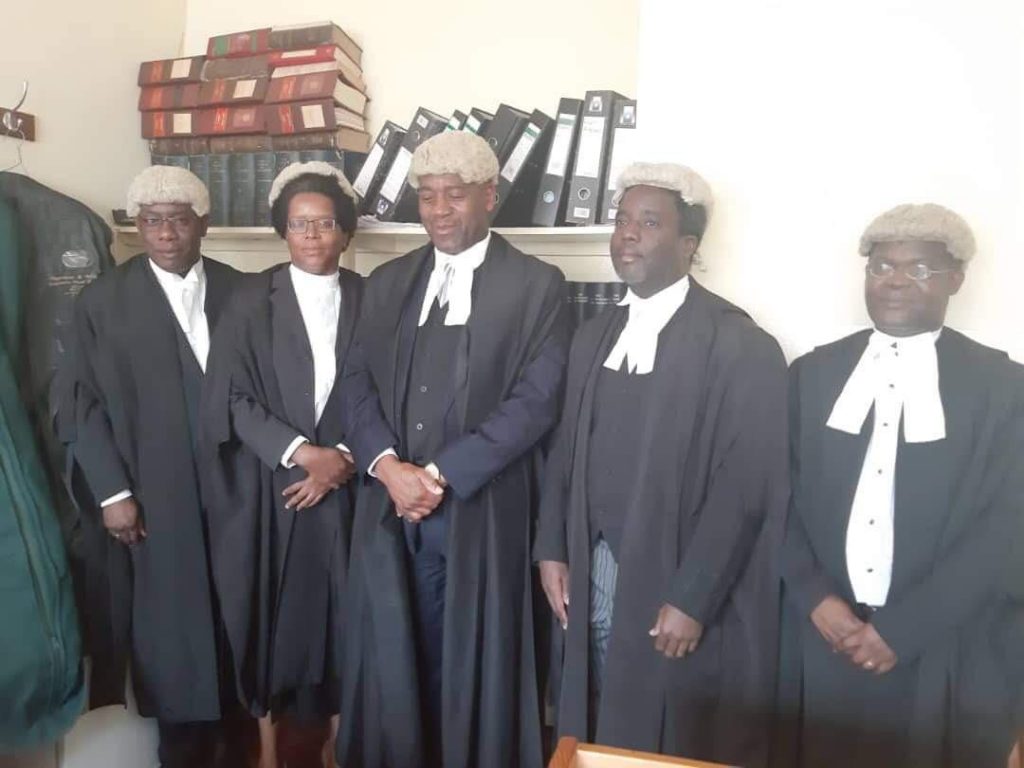
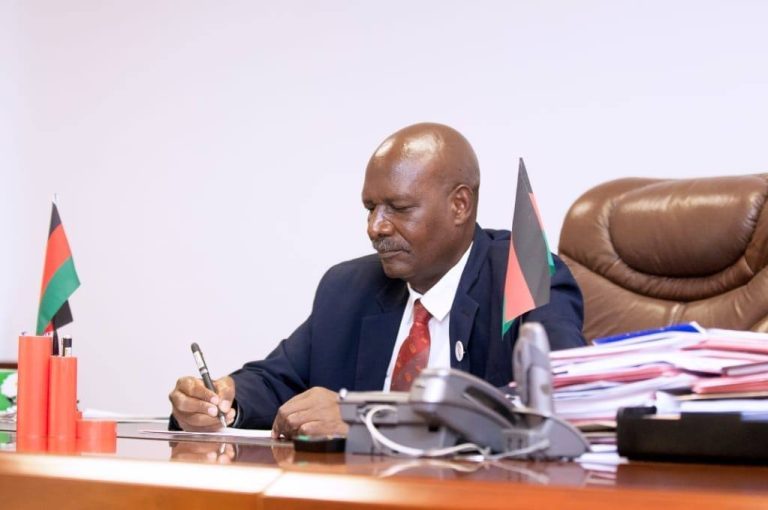
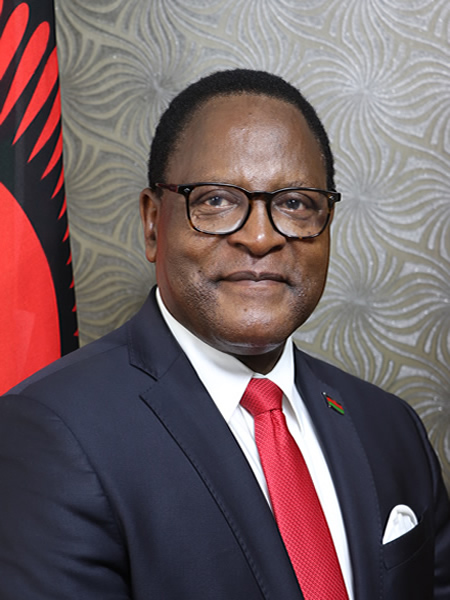
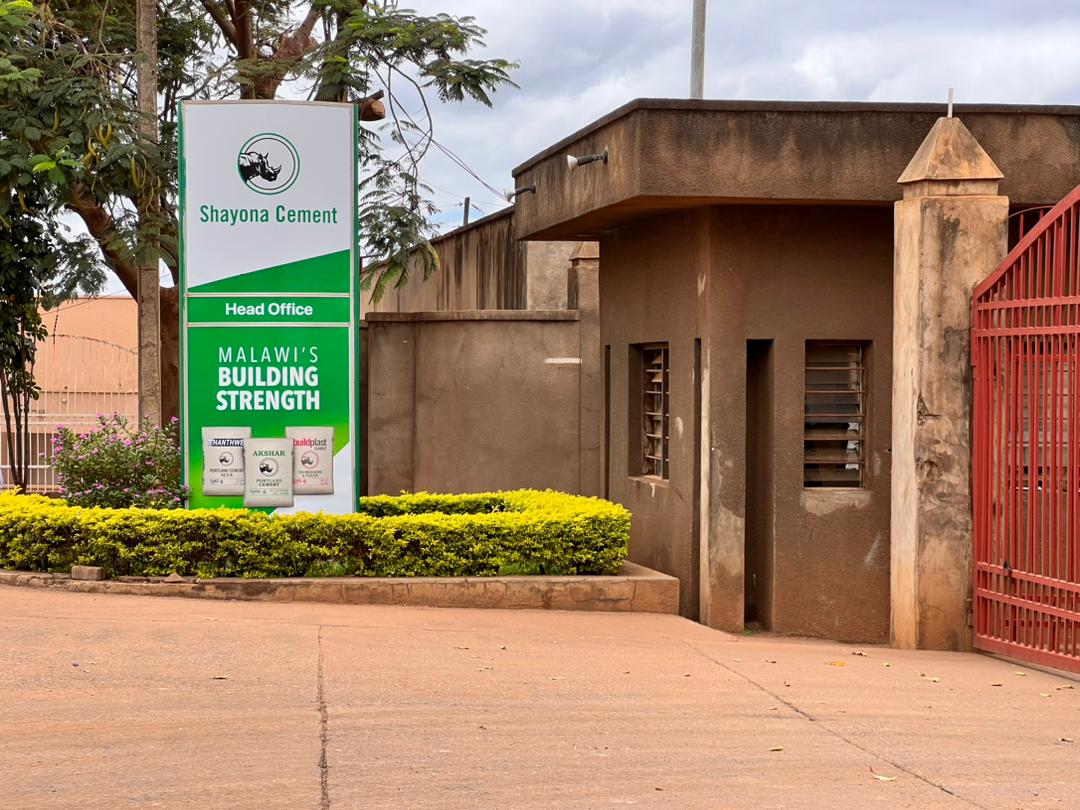
.jpg)
